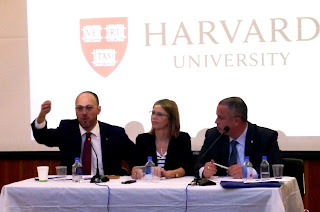In
this paper we wonder whether the efforts of the New Democrats and New Labour to
alter their parties’ images with respect to public spending mute the
differences (or lack thereof) in their supporters’ preferences for public
spending between their respective major parties as observed by Lewis in the UK case
and Lowery and Sigelman in the US case.
We address this question by
constructing matching UK and US data on aggregate public opinion on public
spending at four points since 1980, treating the Clinton New Democrat and the Blair New Labour transformations as interventions that might be expected to alter the preferences of partisans for public spending. We find support for the
thermostatic model of preferences for spending a result that raises questions
about the power of party elites to shape the preferences of their supporters in
the battle over the size of government.

No comments:
Post a Comment